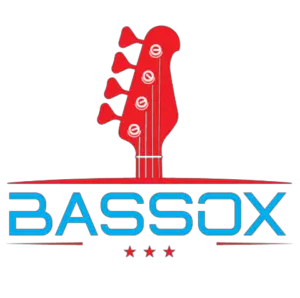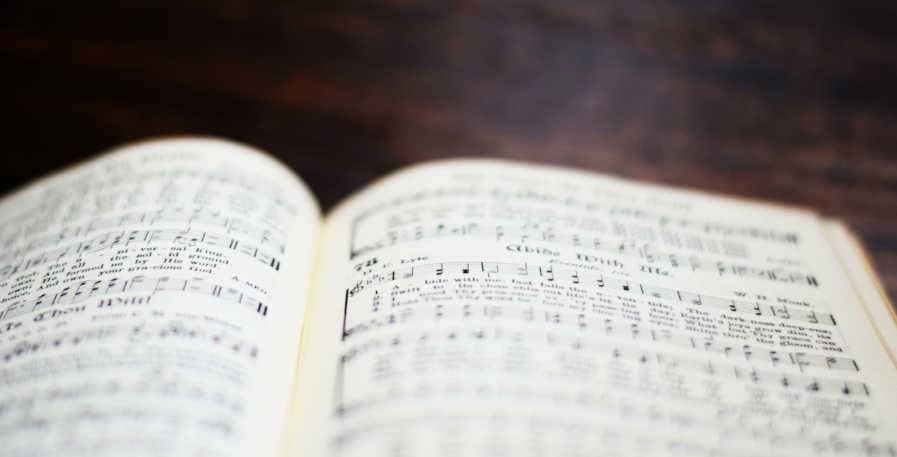For bassists who are unfamiliar with reading music, it can seem like an intimidating skill to learn. At least it seemed that way to me when I decided I was gonna learn how to read notation. But is it a necessary skill, and do you have to read music to play bass?
There are multiple ways to learn the bass guitar and knowing how to read music is not a necessity. Not knowing music theory and how to read notation can however greatly limit your skills and job opportunities as a bassist.
So if learning how to read music sounds like the worst thing in the world, don`t worry. You do not have to learn it to become a great bassist.
With that said, it is also a skill that could benefit you more than you think.
Thus, I decided to write this article to give you an honest overview of what knowing and not knowing how to read music means for you as a bassist. This way, you can make an informed decision about whether it is a skill that you should learn or not.
Can you play bass without reading music?
Multiple successful bassists have demonstrated that the bass can be played at an advanced level without knowing how to read music. While knowing how to read music is often a requirement for professional bass work, it is neither a requirement nor a necessity to play the instrument.
There are multiple ways to master the bass guitar without knowing how to read sheet music. You can use your ears to pick out a bass part and then figure out how to play. It is also possible to rely on tablatures or on educational videos and courses.
Furthermore, a lot of the basic skills needed to play bass are about technique rather than theory. All of which can be learned without knowing anything about reading notation sheets.
Billy Sheehan is a technically proficient bassist, who likes incorporating unorthodox techniques into his playing, such as pinch harmonics. However, he has also stated that he bases his playing on what he is hearing, rather than the music theory behind it.
Flea has written many complex basslines since co-founding Red Hot Chili Peppers in 1983. He did so for 25 years without knowing the theory behind what he was doing before he chose to study music later on in his career.
So yes, it is possible to play the bass at a high level without reading music.
However, depending on what you want to achieve as a bass player, not knowing how to read music could limit you.
If you want to be a session musician or do composing work, being able to read music is effectively a necessity. You can get gigs and work without knowing how to do it, but this severely limits your options in an already competitive industry.
Therefore, I would advise against pursuing these types of careers without knowing how to read music.

The advantage of learning to read music as a bassist
Knowing how to read music as a bassist will improve your overall musicianship and create more job opportunities. It will also make you more effective at learning new music and improve your skills and knowledge as a composer.
Here are the key reasons why I believe every bassist can benefit from learning to read music:
- Sight-reading – Sight reading is the ability to play along to a notation sheet as you`re reading it in real-time. This is an important skill on the job market because you often have limited time to prepare for paid gigs. Bassists who can sight-read well are thus generally more sought after. This is because they can play a gig on shorter notice and do not rely on learning songs during rehearsals.
- Overall musicianship – Being able to read sheet music will not just make you a better bassist, it will make you a better musician. Among other things, it will make it easier to play and write for genres you are less familiar with. You will also become better at understanding why a piece of music works and sounds good. This knowledge can be applied to every instrument and can for example make it significantly easier to learn the piano or the guitar.
- Composing – Learning to read music will significantly boost your ability to compose music. Before I learned how to read music all my ideas were based on what I have heard and not what I understood. Thus, my basslines were often unoriginal and boring, despite me not trying to rip off others bassists. After learning music theory I can now base my basslines on my knowledge of harmony and rhythm, which leads to more interesting and original musical ideas.
- Effectiveness – You need to learn how to play songs somehow. Using tabs or using your ears to pick out bass parts will both work for this. However, reading notation is the most effective way to learn new music by a long shot. This is because using your ears is time-consuming even if you have perfect pitch. As for tabs, they generally don`t account for rhythms properly. Also, given that they are often fan-made means that they are more likely to have mistakes in them.
- Job opportunities – Being able to read sheet music will open a lot of doors for you on the job market. Given how time-consuming and challenging it is to become a professional bass player, it`s thus a good idea to give yourself any advantage you can get. Thus, if are aiming to make a living out of playing bass, knowing how to read music will increase your chance of reaching that goal.
- Collaboration – If you know how to read and write music, it becomes easier to communicate your ideas to others. A band can communicate musical ideas without anyone knowing how to read music. However, knowing music theory and notation will generally make this easier. Furthermore, some bands and orchestras will be used to or expect new music to be presented to them through sheet music.
Conclusion
Whether you should learn how to read music or not as a bassist depends on your personal goals. I want to stress that this is your musical journey. Thus, it is also up to you how you want to approach it.
If you want to jam by yourself, make it big with a band, or just hate the idea of learning to read notations, it`s fine to not learn how to read music. This will limit you in some areas of your playing but could be preferable to turning your passion into an arduous task.
If you want to become a professional session musician or composer, I highly advise learning how to read music. It is possible to do so without knowing how to. However, I can promise you that the struggle of learning to read music will be nothing compared to the challenges you will face on the job market if you don`t.
Lastly, I want to point out that learning how to read music is far less complicated than it seems at first.
Similar to learning a new language, it will feel overwhelming at first when you don`t know any of the words yet. It will not take long before you can start to string together some basic sentences though. At this point, the initial fear will have subsided, and you will be far more motivated to learn more.
While I struggled with reading sheet music in the begging, it became a lot easier once I started to use middle C as a reference point. To learn why it`s so helpful and how to make use of it, check out my guide on Middle C for bass players.

